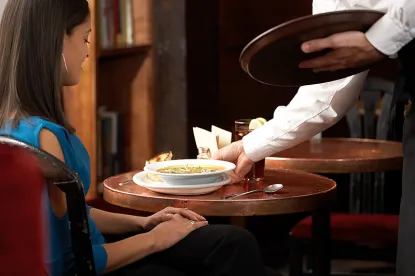In New York, 2020 will be the last year employers who employ tipped employees in car washes, nail salons, and parking garages, among other establishments, will be permitted to pay such employees a rate below the minimum wage and take a “credit” for tips received by such employees to satisfy the state minimum wage requirements, according to an Order issued on December 31, 2019, by the Commissioner of the New York State Department of Labor (NYSDOL).
Beginning in 2021, employers covered by the state’s Miscellaneous Industries and Occupations Wage Order will be required to pay all employees the full minimum wage, without any credit for tips employees receive. The employees will be permitted to receive the full minimum wage directly from the employer and retain all tips. The tip credit will be reduced by 50 percent on June 30, 2020, and then eliminated entirely on December 31, 2020.
The Order issued by the Commissioner does not change the tip credit applicable to employees covered by the Hospitality Industry Wage Order (applicable to restaurants and hotels). For the time being, the tip credit remains available for these workers.
The elimination of the tip credit for workers covered by the Miscellaneous Industries and Occupations Wage Order may be the first in a two-act play to eliminate the tip credit for all workers in New York State. Seven other states do not permit use of a tip credit. The most vigorous debate on eliminating the tip credit has centered on whether to eliminate the tip credit for servers and other hospitality employees.
Report
The Order of the Commissioner adopts the recommendations in a separate report to Governor Andrew Cuomo summarizing the findings of public hearings and released by the NYSDOL on December 31, 2019. In the short, 11-page report, the NYSDOL documents that it held seven hearings across the state in 2019, “capturing 30 hours of testimony from more than 700 individuals” and receiving more than 3,000 comments. The Report notes that car wash attendants and nail salon workers provided the majority of comments in favor of eliminating the tip credit.
The NYSDOL recommends eliminating the tip credit for miscellaneous industry workers because doing so “would provide a more predictable wage floor for tipped workers and would help offset known wage fluctuations due to customer preference, weather, the economy, and seasonality.” It also maintains the move would avoid confusion regarding the wage rate to which a tipped worker covered by the Miscellaneous Wage Order is entitled, as it currently depends on how much in tips an employee earns during the week and varies throughout the state in light of the three separate minimum wage rates (New York City, Long Island and Westchester, and the remainder of the state). For example, a tipped worker in New York City receiving at least $3.65 per hour in tips may be paid a tipped rate of no less than $11.35 per hour, but a worker receiving between $2.25 per hour and $3.65 per hour in tips, must be paid a tipped rate of at least $12.75. “Testimony demonstrated that this system is inordinately difficult to understand,” the Report notes, while failing to mention that this is a system the NYSDOL itself established.
While the Report acknowledges that the elimination of the tip credit will result in increased costs to employers, this concern was outweighed by the perceived benefits in eliminating the tip credit. There are approximately 70,000 tipped employees covered by the Commissioner’s Order, according to the NYSDOL Report.
Minimum Wages for Tipped Workers in Miscellaneous Industries
The new rates for the remainder of 2020 and beginning of 2021 are listed in this chart (PDF).
Employers covered by the Miscellaneous Industries and Occupations Wage Order should determine whether they have tipped employees who will be affected by the new rates in 2020 and plan for increased labor costs beginning in June 2020 and continuing in 2021.






 />i
/>i
